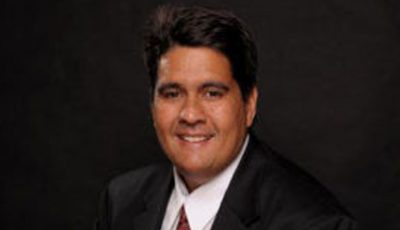A solitary, single, selfie, shopping day
Our understanding of the solitary soul is the epitome of self-awareness vis a vis wholeness, whether in hedonistic sensuality, the self-affirming sense of merging with the One among the mystics and desert monastics, the self-negating Buddhist chant, or the self-surrender to Nothing that is core in Islam.
After numerous terminations of intimate relationships, I’ve taken to the solitary lifestyle without any problem. Being solitary, however, is not necessarily being single. It is an understanding that sees one’s being as totally and profoundly being alone!
China has an addiction to numbers’ games, including repetitions of markings in time. For instance, Yuan Dan, one-one, is New Year’s; Qi Qi, seven-seven, is the day of hearts, like Valentine’s; Jiu-jiu is nine-nine, for elders; 10-10 was Sun Yat Sen’s national movement, taken by Chiang Kai Shek to Taipei, downplayed though not ignored in Beijing. There are others. Eleven-eleven is auspiciously Guang Gun Jie, a parents’ day to look for a suitable partner for their “single” offspring.
The romantic impulse in marital pairings is new in Chinese marriages. With “one child only” in China’s urban centers in the last two decades, and where girls by 18 are socially pressured to be child bearing, tomorrow’s Single’s Day sees organized efforts at public parks by parents promoting to other parents the gifts and virtues of their children. Romance is fine but parents still command their children’s “say so.” Marriage fits into that category, though not for long.
The “selfie” is the art form of the times. The art is technically possible by default in the smartphone industry, universally welcomed though often condemned in some quarters for their focus on the “self,” a biased that is deeply rooted in missionary-led civilizations from the day Eve grabbed the apple in the Garden of Eden story, later evolving into the thinking that preoccupation with self is similar to “original sin”.
I am not a fan of Joel Osteen’s Lakewood Church in Houston, though a foray into Texas’ Sugarland through the old Compaq Center introduced me to the megachurch he pastors with his wife. The zeal Victoria recently articulated got them some press ink. She said: “When you come to church, when you worship Him, you’re not doing it for God really. You’re doing it for yourself, because that’s what makes God happy.”
Critics dubbed their ministry as “me-centered,” a version of cheap Christianity since the Osteens injected pentecostal emotions into their Southern Baptist-dom. Maybe. But “me” as today’s operating context is no longer as vilified as it was in the previous era of Western psychology where “ego” was a no-no.
Of his jail cell, the late Nelson Mandela wrote: “The cell is an ideal place to know yourself. People tend to measure themselves by external accomplishments, but jail allows a person to focus on internal ones, such as honesty, sincerity, simplicity, humility, generosity and an absence of variety. You learn to look into yourself.” Religious intensity in the molding of self-consciousness is a welcome phenomenon.
I am a student of the human journey seen in world religions and cultures. It is clear that previous description of “godhead,” couched in the language of eternity and infinity, in celebration of a culture as golden age or utopia, redounds to the rich texture of “selfhood.” In post-Vatican II, names like Bultmann, Tillich, Bonheoffer, and the Niebuhr brothers among Protestants are mentioned with Chardin, Rahner, Gutierrez, Illich, Kung, Rahner, and Schillebeeckx of our Roman Catholic familiarity, quoted as individuals in varied traditions expounding an existential understanding of human profundity vs. the previous pious collective groupie-ness.
The “self” denigrated by a term like “selfish” misses the point of the authenticity of human experience. We do not aim to glorify ego; we recognize self-consciousness as the beginning point of knowing anything; otherwise there is no wisdom at all.
Shopping Da¥ started in China on 11-11 four years ago, replacing the Single’s Day frenzy. Crass commercialism is now unmistakable, as the young are more anxious if they will have enough money for the “sale” that they hope to spend their earnings on, rather than locate a mate. Spending day now has the single’s heart!
Friends are steeped in the language of eternity and profundity against a veiled self-deprecating, apologetic tone on self-awareness. A necessary task for most religions still treads on the “other world” dream, a promise of heavenly bliss, or in the “spirit” of condemning matter as evil. It is time to move out of the “other world in the midst of this world” language and celebrate the boundaries of selfhood directly within the walls of one’s finitude.
The frenzy tomorrow is to shop ’til you drop. I prefer focusing on the single self. To be is. Simply. In time, location, and role. That’s my story and I am sticking to it!



























